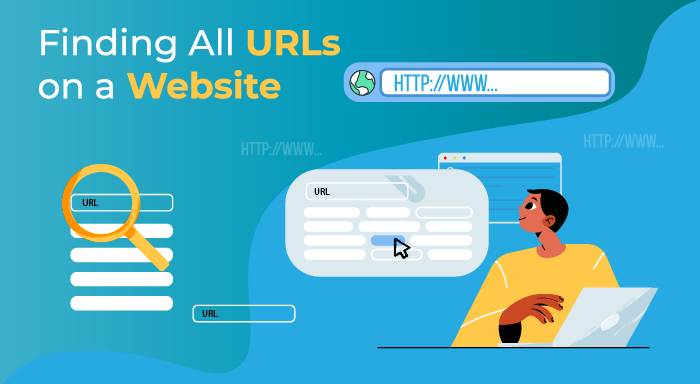Every website is an entity in the World Wide Web space; a location that is lost in the great world of the Web. For an SEO expert who wants to analyze and improve the site’s performance, a content manager who plans and updates the site’s materials, or a simple visitor who wants to study the available Domain, it is important to know how to determine all the URLs on a website. Therefore, the closer people are supposed to know about the structure of a website, this approach also tells about the content of a website, how it can be used, and what can be done for its further enhancement.
This is nearly similar to finding all the streets within a city and that’s not an easy task. Still, when equipped with proper instruments and approaches, this work becomes rather easy and extremely beneficial. Furthermore, there is no shortage of ways to get anywhere on the site, ranging from using Google’s stated search engine power or formulating specialized queries in SEO tools, to using custom scripts for those a bit more technically inclined. This blog will explain to you every method to teach you the wide approach to finding all URLs of a given domain so that you will have the understanding and tools to traverse any website like a pro. Probably, it is high time to shed some light on certain secrets of the web. But before going with that, allow me to ask you a question, why should one get all the URLs of a particular website?
Why find all the URLs on a website?
What is the fuss of getting all the URLs on a website? We’ll tell you why:
1. Get a view of the content of the website to have the big picture in front of you before launching an in-depth analysis
2. Finding URLs helps spot and fix broken links for the ultimate SEO Experience.
3. A website that takes much time to load or that isn't considered to be mobile-friendly can negatively impact your Google Rankings. Finding all the URLs helps check for such issues.
4. To improve the user experience and enable better site navigation, it finds and removes orphan pages
5. Understanding all your website pages fuels the website redesign processes
Now comes the question: How to find these URLs?
Unlocking the hidden jewel of all the web pages is not an easy feat. Let us guide you to some of the tried and tested ways to help you find URLs:
1.Google Search
The first go-to method to find URLs is the Google Search Engine. Type the specific query you want to get help with. However, remember that you may not come across everything. And some outdated pages are also shown in your results.
So, what can you do to find a URL using Google Search? Use the site search operator to quickly access the list of indexed URLs. Enter your site’s domain on the Google Search bar, and you will get the list of all the pages that Google has indexed for that domain. The other way is by using the Google Search Console. It is a free tool that you can use to monitor your site's presence.
2.Robot.txt
Those who are not afraid of digging deeper into the technical details can check the website's sitemap and robot.txt file. This method undoubtedly adds to the accuracy when it comes to finding URLs. However, it has challenges too. If the website is not set up correctly, sifting through the information cannot be completed seamlessly.
But still, how can you view the robot.txt file? You need to add “/robot.txt” to the domain. For instance, you can use https://websitescraping.com//robots.txt to get the location of the website and other important pieces of information.
3. Custom Scripting
If you are trained in coding, you can program a script kind of your own. And you can do that with the help of scripting with Python and using Command line tools. Python Scripting is utilized to create scripts for web crawling and collecting the URLs. Python and web scraping tools are used to scrape interesting things in the given links. Web page downloading, in command line tools, is scripted to include the logging of all URLs that have been discovered.
4. SEO Spider Tools
If you prefer a simple solution that does not require much of an IT push, then this is it. This is where SEO Spider tools come in. Many simple-to-use tools reveal comprehensive SEO statistics. Some of them are Ahrefs, Screaming Frog, SEM Rush Site audit tool, etc.
Conclusion
It is very important to locate and identify all URLs for the website of a given domain for reasons such as SEO check-ups, content, and migration. Primarily, it involves genuine tactics and some influential instruments, for instance, Google Search Console, and robots.txt. While working with TXT files, custom scripting, and diverse SEO spider tools, it is possible to determine the list of URLs effectively. Such URLs’ auditing and proper management will make a website healthy and well-optimized, which, in turn, results in improved UX and rankings.








